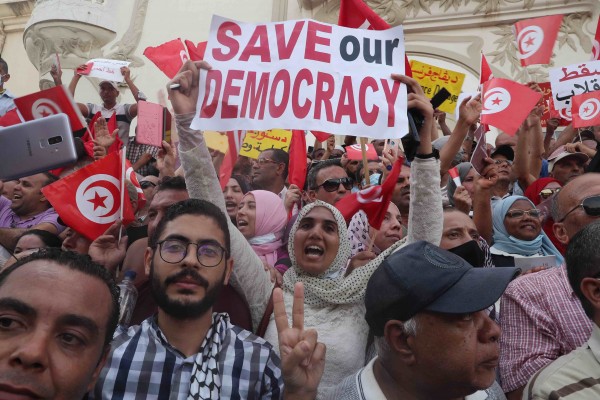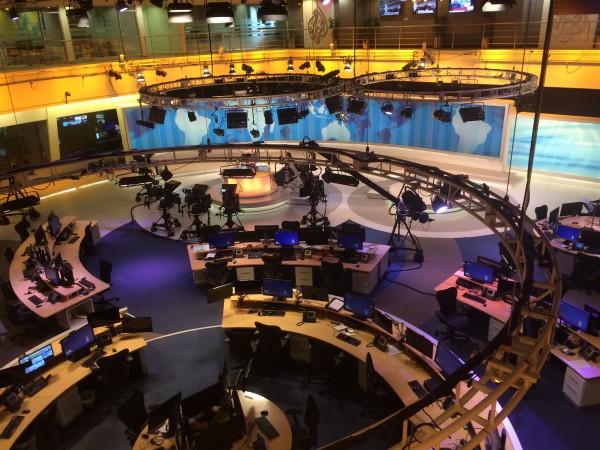The Tunisia Monitoring Group (TMG) yesterday unveiled the findings of its 7th Mission to Tunisia during a panel on the first day of the 4th Arab Free Press Forum in Beirut, Lebanon – an event attended by IPI Director David Dadge. The report, entitled Behind the Façade: How a Politicised Judiciary and Administrative Sanctions Undermine Tunisian Human Rights,”is the result of first-hand research by TMG participants, who met with a broad range of independent journalists, human rights lawyers and activists and foreign diplomats during their two-week visit to the North African country in April 2010.
IPI Press Freedom Manager Anthony Mills participated in the Tunisia mission, along with other representatives of the TMG, which brings together twenty organisations from the International Freedom of Expression Exchange (IFEX) network.
IPI Press Freedom Manager Anthony Mills said: “It became painfully clear to us that there is a yawning gap between Tunisia’s noteworthy economic and social progress, and the enormous pressure under which independent journalists are forced to operate in the country. They face harassment, physical attack, and imprisonment.”
“The report reveals how the legal system in Tunisia can be abused and manipulated by the authorities to silence critical opinion,” said Rohan Jayasekera of Index on Censorship, current chair of the TMG. “Only a truly independent legal system – from courthouse lawyers to supreme court judges – can protect constitutionally guaranteed human rights.”
The report draws from research and interviews during the TMG’s seventh mission to Tunisia, conducted between 25 April and 6 May 2010. The TMG found that there had been a significant deterioration of human rights in Tunisia since the last TMG mission in 2007.
The report records a number of recurring cases of harassment, surveillance, and imprisonment of journalists and human rights activists some of whom have been detained in harsh conditions, physically harassed and dismissed from their jobs. Others have been denied their rights to communicate and move freely. The report culminates with 18 specific recommendations for change.
A potpourri of administrative sanctions used to limit free expression and exert indirect pressure on journalists and human rights defenders are also addressed. These include denying licences to independent and opposition media, the harassment of critical journalists and human rights defenders and the confiscation of publications.
Another chapter analyses the tactics the Tunisian authorities have employed in an effort to prevent the emergence of an independent judiciary, in spite of its national and international obligations.
“At a time when the Tunisian government is seeking “advanced status” with the EU, TMG members urge the government to take serious steps to adhere to international standards of basic human rights, as guaranteed by the Tunisian Constitution as well as by the African Charter on Human and Peoples’ Rights, the Universal Declaration of Human Rights and the International Covenant on Civil and Political Rights,” says Amadou Kanoute of ARTICLE 19, the team leader for the TMG mission.
The TMG is a coalition of 20 members of the International Freedom of Expression eXchange (IFEX) network which has been monitoring violations in Tunisia since 2004. Members of the recent mission included experts from ARTICLE 19, Index on Censorship, International Press Institute, Norwegian PEN and the Writers in Prison Committee of International PEN.


